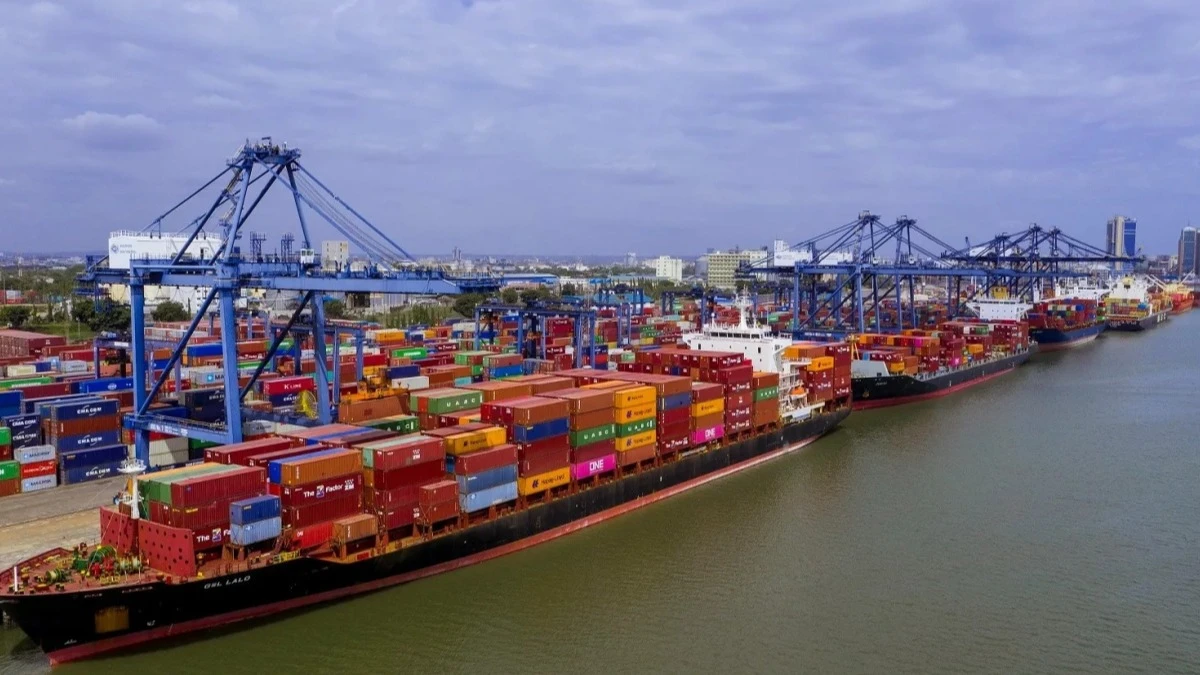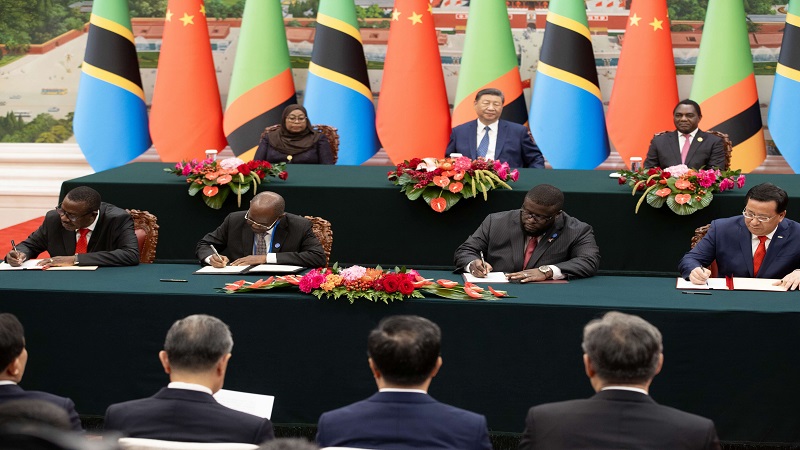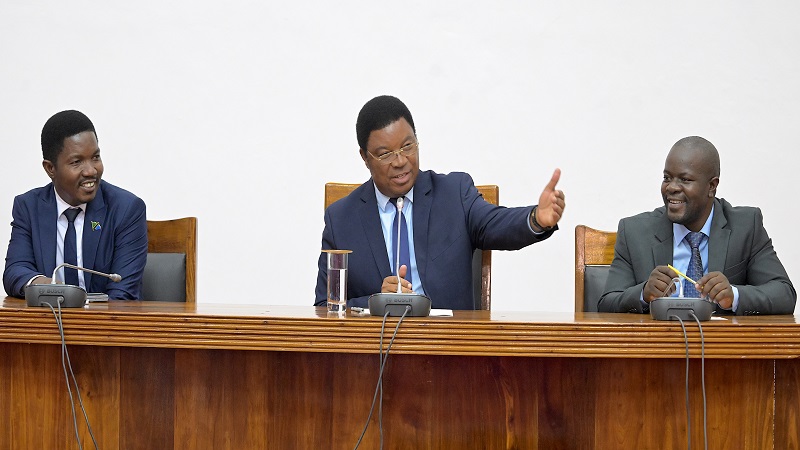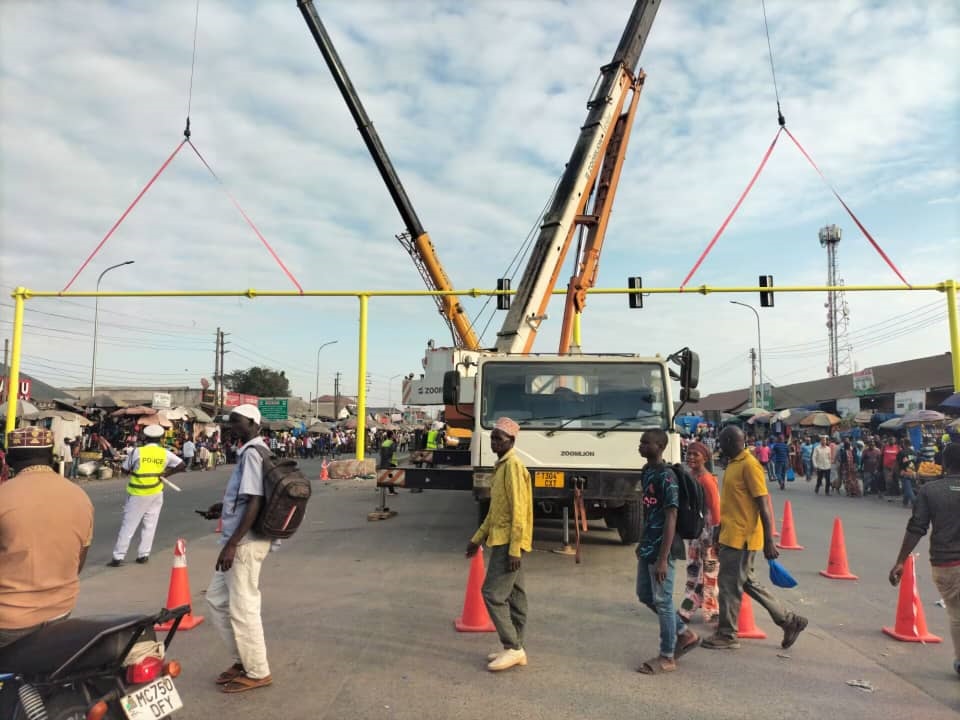Reform resolution ‘most important outcome’ of latest CPC plenum
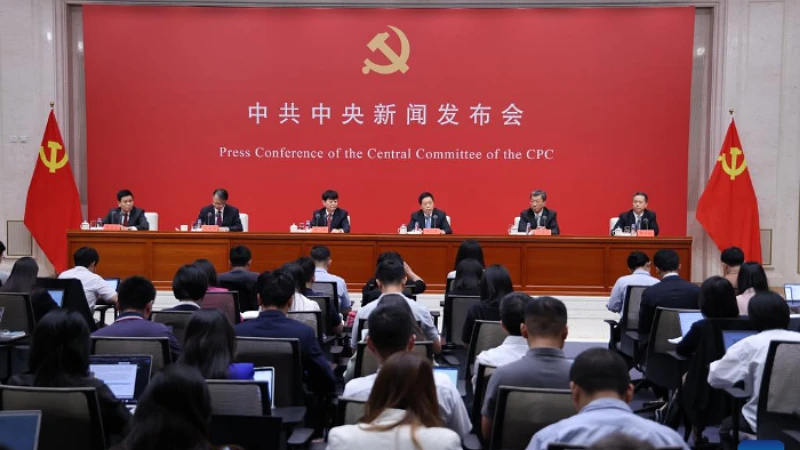
The adoption of a reform resolution is the most important outcome of the third plenary session of the 20th Communist Party of China (CPC) Central Committee, a senior official said yesterday.
Tang Fangyu, deputy head of the CPC Central Committee Policy Research Office, made the remarks at a press conference on the guiding principles from the just-concluded plenum.
Promoting Chinese modernization faces many complex issues, necessitating further deepening reform comprehensively to better adapt the relations of production to the productive forces, the superstructure to the economic base, and national governance to social development, Tang said.
The resolution, with economic structural reform as the spearhead, comprehensively plans reforms in various fields and aspects, Tang said, adding that the resolution puts forward more than 300 important reform measures, all of which involve reforms on the levels of systems, mechanisms, and institutions.
Urban-rural development
The resolution has highlighted the importance of improving the mechanism for integrated urban-rural development, said Han Wenxiu, executive deputy director of the Office of the Central Committee for Financial and Economic Affairs.
China will accelerate efforts to build a high-standard market system, which is a major reform task for the country, Han said.
Efforts will be made to build a unified national market, including the development of a unified urban-rural construction land market, a nationwide integrated technology and data market, and a unified national electricity market.
The country will improve the market system and rules for production factors such as labor, capital, land, knowledge, technology, management, and data, Han told the press.
The systems underpinning the market economy will be refined, including optimizing the systems for property rights protection, information disclosure, market access, bankruptcy exit and credit supervision.
To strengthen its macroeconomic governance, China looks to improve the fiscal relations between central and local governments, and research will be conducted to make China’s tax system compatible with new business models, Han added.
China will also enhance policy support for childbirth to foster a fertility-friendly society, as part of its efforts to ensure and improve the people’s wellbeing, according to Han.
He said the country will make institutional improvements to facilitate high-quality and full employment, and enhance the development of old-age care industry. In promoting high-level opening up, China will expand unilateral opening up to the least-developed countries, and open to the rest of the world its goods, service, capital and labor markets in an orderly way, Han said.
Improvements will also be made on relevant systems to make it more convenient for people from overseas to live, seek medical services and make payments in China.
Legislation in sync with modernization drive
China will advance its path to modernization by deepening reforms in legislation, with greater efforts in formulating and revising some major legislative items, Shen Chunyao, an official from the Standing Committee of the National People’s Congress, said yesterday.
A new resolution has put forward new requirements for legislation, such as formulating laws to promote private economy, financial development, ethnic unity and fight against cross-border corruption, Shen, head of the NPC Standing Committee’s Legislative Affairs Commission, told media at the news conference.
According to the resolution, revising the Supervision Law and compiling a code on environment and ecology are also major legislative tasks in the coming period, he added.
“We’ll formulate laws in a timely manner to meet the needs of deepening reforms, and amend, improve or abolish legislative items that are incompatible with the reforms and development,” Shen said. The NPC Standing Committee will also make authorized decisions on some reforms that need to be tested or piloted first due to lack of practical experience, he added.
Recalling legislative achievements made after the 18th CPC National Congress in 2012, he said the country has been committed to promoting reforms and advancing the building of rule of law at the same time.
Comparing the rule of law and reforms to the two wings of a bird, he added that China will continue deepening reforms and promoting the Chinese modernization along the path of the rule of law.
Data released by him showed that China has had 303 effective laws, of which 78 were enacted after the third plenary session of the 18th CPC Central Committee, such as the Civil Code, a milestone legislative item and also a fundamental law for regulating civil activities.
Talent cultivation
China will focus on strengthening targeted talent cultivation and scientific and technological innovation in higher education to provide strong support for establishing a major global center for talent and innovation, Education Minister Huai Jinpeng said on Friday.
In recent years, universities have played a significant role in the national innovation system, Huai said at the news conference.
“Major original breakthroughs have been achieved in the sciences regarding quantum, life, material, and space,” he said.
China will promote categorized reforms in universities, guiding various types of institutions to leverage their strengths in different fields. “We will accelerate the construction of world-class universities and disciplines with Chinese characteristics,” he said.
To enhance innovation capacity, the country will further cultivate top talent in fundamental disciplines and advance the construction of subjects involving new engineering, new medical sciences, new agricultural sciences, and new liberal arts, Huai said.
“We will strengthen the coordinated development of S&T and humanities education, improving students’ innovative thinking in S&T by enhancing their humanistic qualities,” he said.
In addition, the education ministry will implement breakthrough plans for basic and interdisciplinary sciences to promote more original technological innovations, Huai said.
He highlighted the cultivation of young scientific talent through providing long-term support for a group of young university lecturers to engage in high-level exploration and challenge scientific frontiers, he added.
Stick to opening-up
The increasing uncertainties in the outside world will not affect China’s determination and confidence in deepening reform and expanding opening-up, said Mu Hong, vice-chairman of the 14th CPPCC National Committee and deputy director of the Office of the Central Commission for Deepening Reform.
Opening-up to the outside world is a fundamental national policy, Mu said, adding that China will stick to the policy to promote reform, development and innovation as well as continue to elevate opening-up to a higher level.
The resolution adopted by the 20th Central Committee of the CPC on further deepening reform comprehensively to advance Chinese modernization at its third plenary session has made a special plan for opening-up to the outside world, giving out a clear signal of expanding high-level opening up, Mu said.
Xinhua
Top Headlines
© 2024 IPPMEDIA.COM. ALL RIGHTS RESERVED











